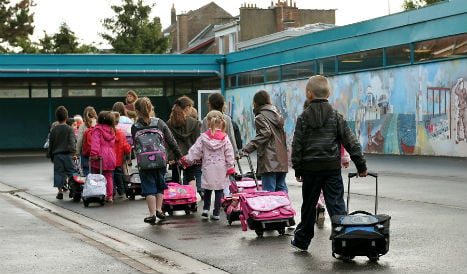Parent associations believe that Spanish schools are setting too much homework and have called “homework strikes” for weekends during November.
“Parents who join the strike will formally ask schools not to set homework over November weekends,” said a statement from CEAPA, Spain’s umbrella organisation representing 12,000 parent associations across Spain.
“If schools do anyway then parents will send in a note excusing their children for not having done the work with the explanation why,” it said.
Homework setting guidelines depend on regional educations authorities. Madrid for instance recommends that children are given 10 minutes daily homework in Year One (five-year-olds) increasing by 10 minutes each subsequent year, although parents complain that in truth the homework amounts to much more.
A recent survey by CEAPA revealed that one in five children spent two-and-a-half hours a day doing homework and more than 58 percent of parents said their child’s grades suffered if they did not complete it.
Overall, 41 percent of parents believe the amount of time spent on homework is too much, 28 percent say it is 'way too much' and 13 percent consider it 'excessive'.
Around half believe that the burden on children has become too much and is detrimental to family life, leaving little enough time for a child’s basic needs.
“The general perception is that more and more homework is being set as time goes on. We now find that even children at infant school (3-5 years) are bringing home school work,” explained José Luis Pazos, president of CEAPA in El Pais.
“School work simply must be done at school,” he said.
The call to strike is part of a wider campaign to reduce homework and follow a system more similar to that in place in Finland, which ranks as a nation with one of the best education systems in the world, where children don’t start school until they are seven-years-old and are not set homework.
According to a 2012 report by the OECD Spanish school children spend 6.4 hours a week on homework, almost a third longer than the 4.8 hour average in developed nations.



 Please whitelist us to continue reading.
Please whitelist us to continue reading.
Member comments